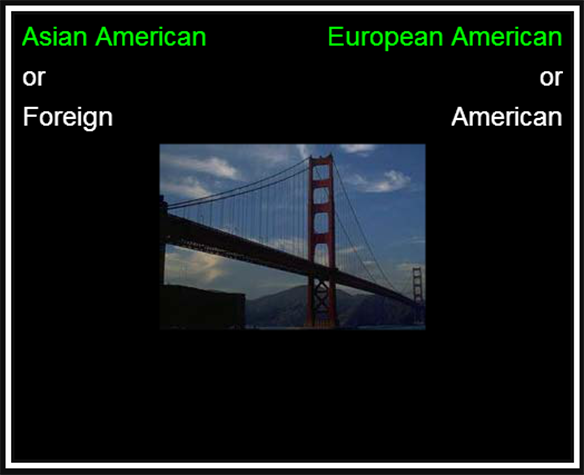Two recent events had a strikingly similar theme. Kenichi Ebina won America’s Got Talent and Nina Davuluri won Miss America. In both instances, other Americans objected to their victories, claiming that they were not really American because Ebina and Davuluri are of Japanese and Indian origin respectively. Still other Americans objected to this reaction. And yet, as I’ll argue below, most of us share their bias.
First, thanks to Public Shaming, we have examples of the reaction on Twitter. Reactions to Ebina’s win:



Reactions to Davuluri’s win:



These are stark examples of people who believe that only white people count as American. It’s a bizarre position, of course, because people of European descent are immigrants to America, and an overtly racist one as well. I don’t lose any sleep over publishing their identities here.
But, the truth is, the majority of us—even those of us who oppose racism and embrace the idea that the U.S. is a nation of immigrants—hold the belief that America = white. We just believe this subconsciously.
Project Implicit is an online psychological test that measures implicit beliefs, ones we hold that we’re not necessarily conscious of holding. One test is of the association of Asian-ness with American-ness. It works by measuring how long it takes us to sort Asian and European faces and American and foreign famous sites into the proper categories.
First they ask you to sort faces and places with Asian and foreign together on the left and European and American together on the right. Like this:

Then they switch the bottom designations so that Asian and American are on one side and European and foreign are on the other. For most people, this harms their ability to sort faces and places: it slows down and includes more errors, revealing that their brain implicitly sees Asian and foreign as one category and American and European as another.
Here’s the aggregate data. Almost a quarter of people make no association either way, 60 percent implicitly believe that Asians are less American than Europeans, and 17 percent think the opposite.

The take-home message is: Even though it’s easy to condemn the twits making overtly racist comments, this is a problem that is much more pervasive and pernicious. Even those of us who are horrified by those tweets likely carry the bias behind them.
This post originally appeared onSociological Images, a Pacific Standard partner site.




